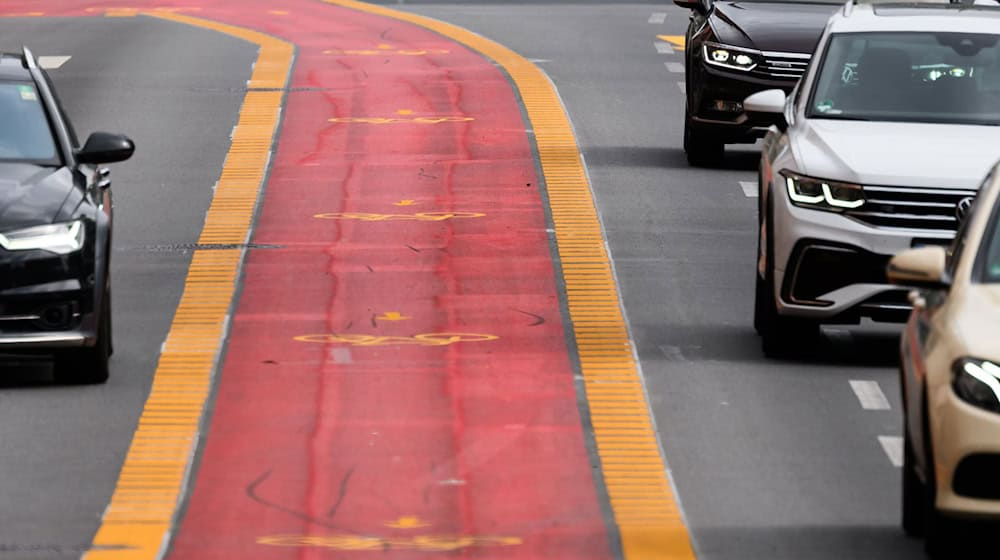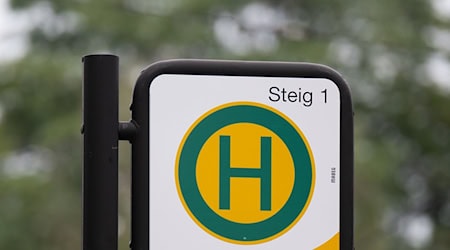There is a dispute between the two small coalition partners in Saxony about the reasons for the sluggish expansion of cycle paths. "More people want to cycle more often if the infrastructure is right and safe. In Saxony, however, there is a lack of momentum to plan and build cycle paths quickly," said Paula Piechotta (Green Party), member of the Bundestag in Leipzig, to the German Press Agency. Despite all the commitments to better infrastructure, the Saxon Ministry of Transport is simply leaving tens of millions in federal funding for cycling unused. "Anyone who fails to apply for and use these federal funds for Saxony in good time seems to be unconcerned about mobility and road safety for everyone. Saxony needs more speed for better cycling infrastructure throughout the state."
Greens: Saxony's Ministry of Transport dawdles on cycle path construction
According to the Greens, the office of Transport Minister Martin Dulig (SPD) only called up six million euros for federal cycle paths in 2022, although 10 million was available. Money had also been left behind in the previous year. "It is therefore not surprising that of the 2,130 kilometers of federal roads in Saxony, only 559 kilometers have a cycle path, which corresponds to 26 percent. This puts Saxony at the bottom of the league nationwide, with the national average being 41 percent." From 2020 to 2028, more than 80 million euros will be available to Saxony from the federal government's "Stadt und Land" cycling promotion program. Almost half of this (42 percent) has not yet been committed.
The Dulig Ministry is also "dawdling" when it comes to federal funding for the planning and construction of high-speed cycle paths (RSW). In Saxony, the RSW Leipzig-Halle (Schkeuditz-Leipzig section) and the RSW Dresden-Radeberg are to be funded. "Federal funds have been available for the Leipzig-Halle project since September 2022 and for the Dresden-Radeberg project since June 2023. To date, the Free State has not called up a single euro," it said. It was not until April 9, 2024 - long after the funds had been made available - that the Saxon cabinet created the conditions for the municipalities to apply for the money. "The RSW must be planned and built by 2030. Due to the delay caused by the Free State, the municipalities now run the risk of having to apply for federal funds first and then transfer them back later."
Dulig: Greens are preventing faster planning
Dulig reacted promptly. "I have no understanding for the fact that the Green coalition partner of all people, whether in the state or federal government, is criticizing me for the slow construction of cycle paths. That's really quite something. After all, they have spent years preventing us from building cycle paths more quickly by simplifying procedures," Dulig told dpa. The problem with building cycle paths is generally not the money. Saxony has made sufficient provision for this in its budget and the federal government has also made sufficient funds available. "On the contrary: the main problem is the planning times. It now takes almost as long to plan a cycle path as it does a road - eight to ten years. We wanted to shorten this by, for example, removing pointless regulations such as the environmental impact assessment. But this is exactly what the Greens have prevented."
According to Dulig, Saxony has created a binding regulation for federal and state roads that a cycle path must be built when new roads are built or extended. The fact that the local authorities - which are responsible for this themselves according to the law - are so slow to build them is not down to the Free State. "We have provided the funding, including for planning services. They just have to be called up - for example by the three large cities with their green transport mayors. If you know the facts and slow down procedures yourself, you shouldn't throw mud at them. That is not appropriate in a coalition."
At the same time, the Ministry of Transport made it clear that funds from federal and state programs can only be called up if plans have reached the stage of construction maturity and are being implemented. "Green federal politicians should also be aware of this. You can't call up funds just to make the statistics of individual parliamentary groups look good." When he took office in 2014, Dulig found a ministry in which cycling was not a priority and changed this. Since joining the government in 2019, the Greens have not put forward any initiatives or ideas of their own to speed up or simplify the construction of cycle paths, nor have they put forward any proposals on where to find more staff for planning and construction.
Copyright 2024, dpa (www.dpa.de). All rights reserved










